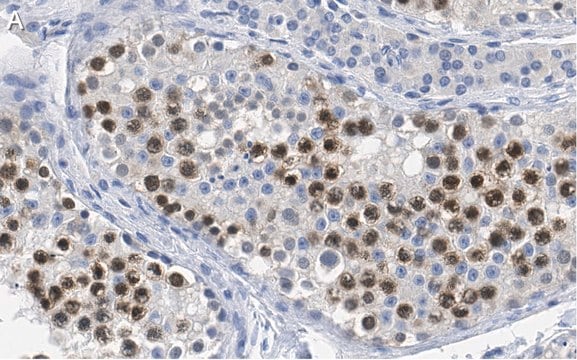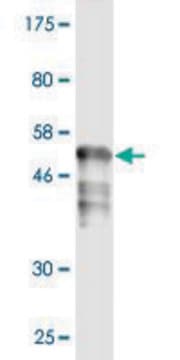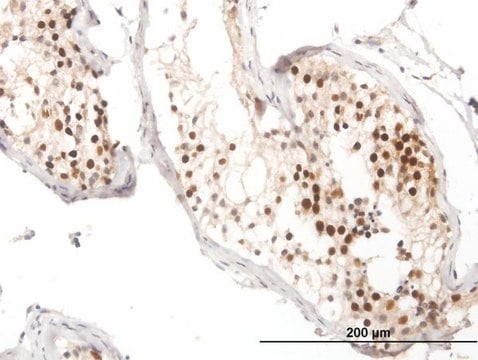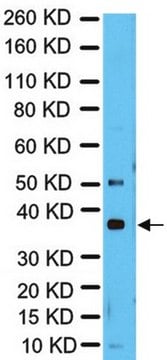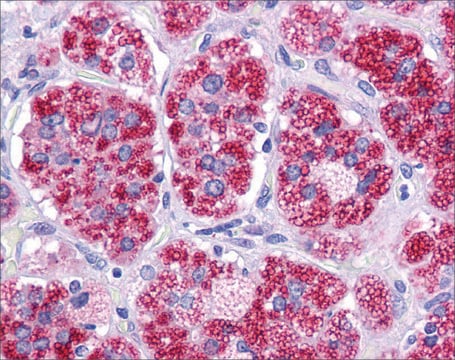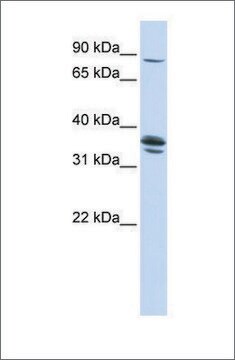ABE257
Anti-RAD51 Antibody
from rabbit, purified by affinity chromatography
Synonym(s):
DNA repair protein RAD51 homolog 1
Short name=HsRAD51
Short name=hRAD51
Alternative name(s):
RAD51 homolog A
About This Item
IP
WB
immunoprecipitation (IP): suitable
western blot: suitable
Recommended Products
biological source
rabbit
Quality Level
antibody form
affinity isolated antibody
antibody product type
primary antibodies
clone
polyclonal
purified by
affinity chromatography
species reactivity
rat, human, mouse
technique(s)
immunocytochemistry: suitable
immunoprecipitation (IP): suitable
western blot: suitable
NCBI accession no.
UniProt accession no.
shipped in
wet ice
target post-translational modification
unmodified
Gene Information
human ... RAD51(5888)
General description
Specificity
Immunogen
Application
Immunoprecipitation Analysis: 40 µLof Anti-RAD51 immunoprecipitated RAD51 from HeLa RIPA lysate.
Epigenetics & Nuclear Function
Cell Cycle, DNA Replication & Repair
Quality
Western Blot Analysis: 1:2,500 dilution of this antibody detected RAD51 on 10 µg of HeLa cell lysate.
Target description
Linkage
Physical form
Storage and Stability
Analysis Note
HeLa cell lysate
Other Notes
Disclaimer
Not finding the right product?
Try our Product Selector Tool.
recommended
Storage Class Code
12 - Non Combustible Liquids
WGK
WGK 1
Flash Point(F)
Not applicable
Flash Point(C)
Not applicable
Certificates of Analysis (COA)
Search for Certificates of Analysis (COA) by entering the products Lot/Batch Number. Lot and Batch Numbers can be found on a product’s label following the words ‘Lot’ or ‘Batch’.
Already Own This Product?
Find documentation for the products that you have recently purchased in the Document Library.
Our team of scientists has experience in all areas of research including Life Science, Material Science, Chemical Synthesis, Chromatography, Analytical and many others.
Contact Technical Service